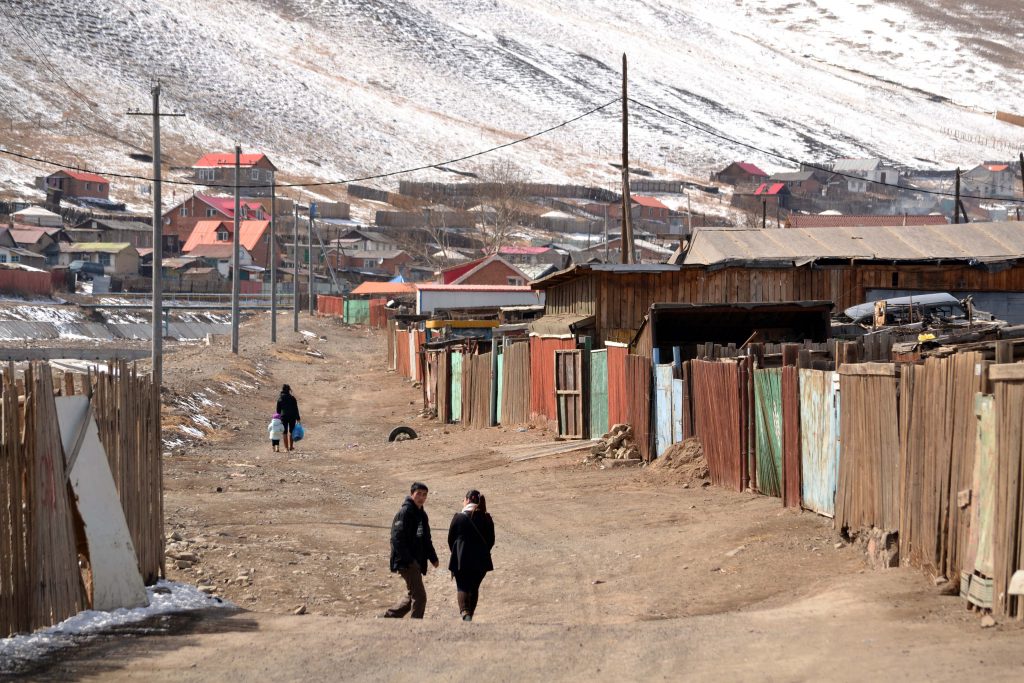Noel Sampson
By
Amnesty International
The Mongolian authorities are failing residents of Ulaanbaatar with an urban redevelopment process that is putting thousands of people at risk of forced eviction and homelessness, human rights NGO Amnesty International said in a new report published.
The 55-page policy briefing, Falling Short: The Right to Adequate Housing in Ulaanbaatar, Mongolia highlights the plight of residents in Mongolia’s capital and reviews an urban redevelopment agenda that is marred by a lack of information on eviction, compensation and resettlement.
“Families are living in fear that they will be left homeless as a result of urban redevelopment. The authorities are falling short in their responsibilities to protect residents’ rights,” said Nicholas Bequelin, East Asia Director at Amnesty International.
“The ambitious redevelopment agenda has not been matched with the establishment of sufficient safeguards to protect against the risk of forced eviction. There is an urgent need for the authorities to put in place clear and effective guarantees to protect residents’ rights.”
Ulaanbaatar’s redevelopment agenda
The current redevelopment plan for Ulaanbaatar is focused on 24 ger areas where approximately 9% of the city’s 1.3 million residents live and public housing which is deemed unsafe or structurally unsound.
Ger areas combine both houses and gers (traditional round felt dwellings) and often lack basic infrastructure such as roads, access to water, sanitation and heating. They have multiplied over the past decade, as hundreds of thousands of herder families have left the steppes to settle in the outskirts of the city. These families typically find a piece of unoccupied land, put up a fence and erect their ger as they look for new ways to support their livelihood.
The redevelopment agenda has the potential to transform the living conditions for many Ulaanbaatar residents, with better housing and access to services for new and old inhabitants. It could also help combat high levels of air pollution through measures such as improved land use and upgrades to heating systems and water supplies.
However, the absence of clear and adequate government regulation, effective consultation and monitoring makes individuals affected by redevelopment vulnerable to a range of human rights violations, in particular the right to adequate housing.
Shortcomings in legal protections
A critical deficiency of relocation policies identified by Amnesty International is that residents lacking formal land titles or whose names do not appear on land deeds—a common occurrence in Ulaanbaatar where khashaa (fenced plot of land) are often shared by different families—are excluded from the procedures governing evictions and relocations.
The possibility of removing people from their land and housing for redevelopment without adequate consultation and compensation presents a serious risk of forced eviction and other human rights violations and runs counter to the stated objectives of the urban redevelopment agenda to “ensure a healthy, safe and comfortable living environment”. Under international human rights law, adequate consultation with and compensation for all residents are necessary to make evictions lawful.
Another key failing of current legislation is the absence of specific measures to ensure equal participation of all and consultation with those affected by the redevelopment in specific and different ways including women, the elderly, youth and people with disabilities.
For example, while the Development Law includes a clause to ensure that new infrastructure must include conditions for easy access for people with disabilities, there is no provision requiring consultation on the planning and design of the new infrastructure with people with disabilities who may not be title holders.
Increased risk of homelessness
Amnesty International’s research also found that residents often lacked adequate information which was a key factor in placing them at a distinct disadvantage with property development companies. Private developers play a major role under Ulaanbataar’s current urban redevelopment programme.
While in recent years a number of key laws and policies on redevelopment have been amended—at times in the right direction—residents have been left in the dark about what these changes mean in practice when faced with the risk of being evicted or relocated.
One resident told Amnesty that her family saw no choice but to sign an agreement with a construction company that they considered potentially disadvantageous. They were told by the construction company that if they refused the terms of the agreement, the developer would utilize the provisions in the law to have them evicted – provisions that are contradicted in other redevelopment laws and regulations.
At the outset of the redevelopment project, residents were often offered rent money for fixed terms to pay for temporary accommodation until the new housing is built. However, with many projects now stalled as developers failed to make provisions for the current economic downturn and cannot cover the longer term payments, many families cannot afford the rent on their own.
Ahead of this year’s winter, several families told Amnesty International they feared that they would be made homeless as a result. Temperatures typically reach minus 30 degrees Celsius during Ulaanbaatar’s winter.
“No one should be left homeless because of redevelopment, yet families in Ulaanbaatar find themselves in limbo with no protection from the authorities as developers halt construction,” said Nicholas Bequelin.
“Mongolian authorities must put the rights of residents first and ensure everyone affected by urban redevelopment is involved in the consultations. The government has the responsibility to make sure everyone involved is aware of their rights.”



No Comments Yet!
You can be first to comment this post!